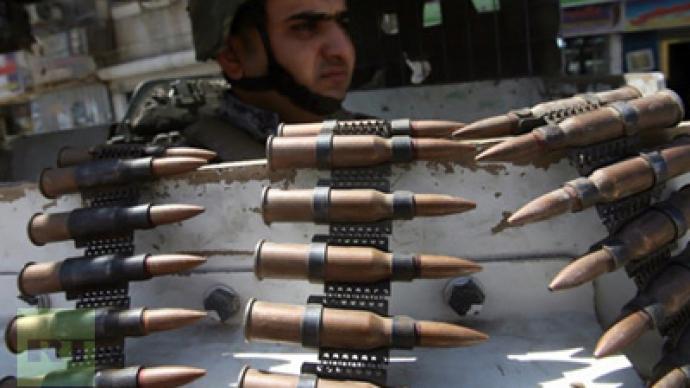Neighborhood armies take up baton in Iraq

As violence rages in Iraq, paramilitary groups are struggling to maintain security in the region, and their methods are often causing concerns.
This week has been the bloodiest in Iraq for months: at least 76 people have been killed and 200 wounded in a series of attacks in mainly Shia neighborhoods in Baghdad. The blasts came just two days after Al-Qaeda militants took a Christian congregation hostage, leaving 58 dead. With a complete US pullout scheduled for the end of next year, many Iraqis say they feel abandoned amid escalating violence. Some, however, are losing more than protection.A Sunni armed group, praised by the US for its help providing security, is now falling back into the hands of local warlords and Al-Qaeda.They are known as the Sons of Iraq, or the Awakening Council. Comprised of tens of thousands of Sunni Muslims, angry at the Shiite Iraqi government, they were won over by American dollars to fight Al-Qaeda four years ago.One of their strengths was that they lived in the neighborhoods in which they kept watch.Now, despite attempts by the Iraqi government to disarm them, they continue to patrol the streets, because, they insist, Iraqi soldiers just cannot keep the peace.But are these paramilitary groups upholding the rule of law, or are some of their activities questionable, as suggested in the 400,000 Iraq documents recently released by WikiLeaks?In one account, a Sons of Iraq leader is said to have been responsible for the murder of innocent civilians, conducting insurgent activities, extortion, and rape.“Everything has a positive and a negative side,” says General Muddhir al Mawla, supervisor of the Awakening Council. “Some leaders used their position for settling tribal scores, stockpiling weapons, making money and killing innocent civilians, but the majority brought stability.”But that majority also feels abandoned by America, which armed, trained and paid them. Despite big promises, fewer than half of the 90,000-strong force has been given work or absorbed into the Iraqi security forces. “After the Americans were finished with these groups, after Iraq was secure, they no longer supported us, especially when the Iraqi government charged our leaders with crimes,” says one of the founders and leaders of the Awakening Council. “A lot of the leaders have lost trust in the American and Iraqi governments, and are afraid that by working for them they might face charges and/or assassination.”Iraqi security officials say hundreds of the Awakening members have returned to Al-Qaeda, and that many of the thousands now on the Iraqi government payroll secretly aid the insurgency.Some observers say, Iraqi security forces are running a losing race to keep up to speed to either integrate the groups or to be able to secure Iraq without them.Armed and dangerous, these paramilitary groups struggle to find a place for themselves, leading observers to warn that while they might have been used for short-term military gains, in the end they could be the roadblocks to peace.












